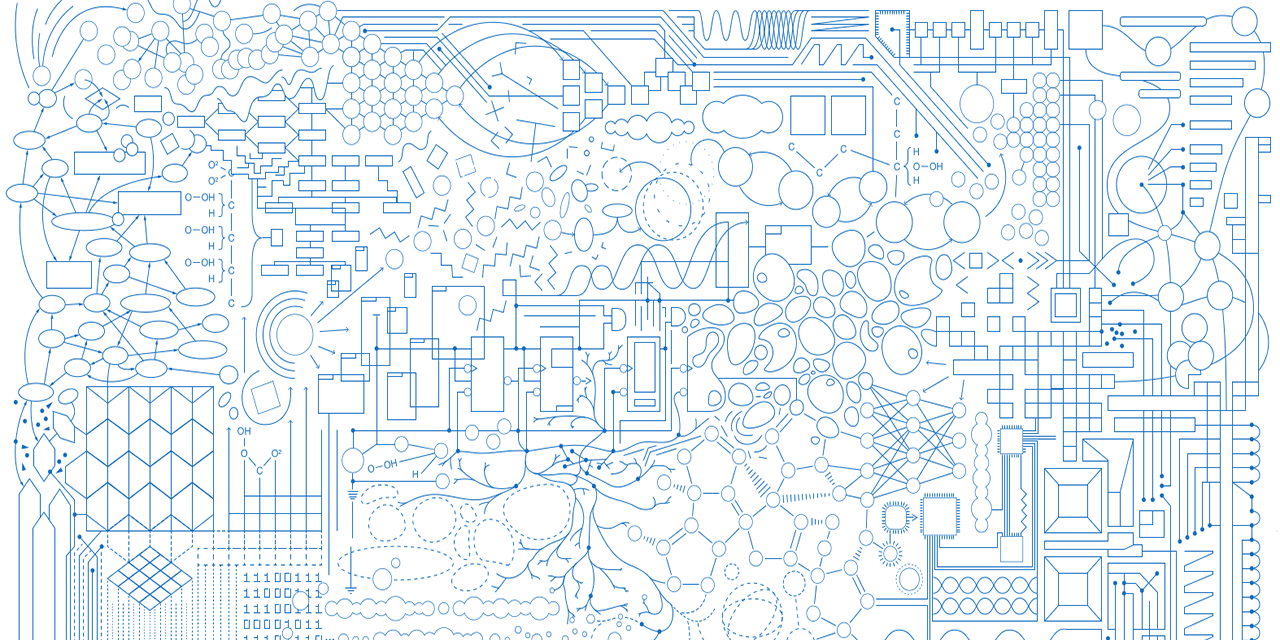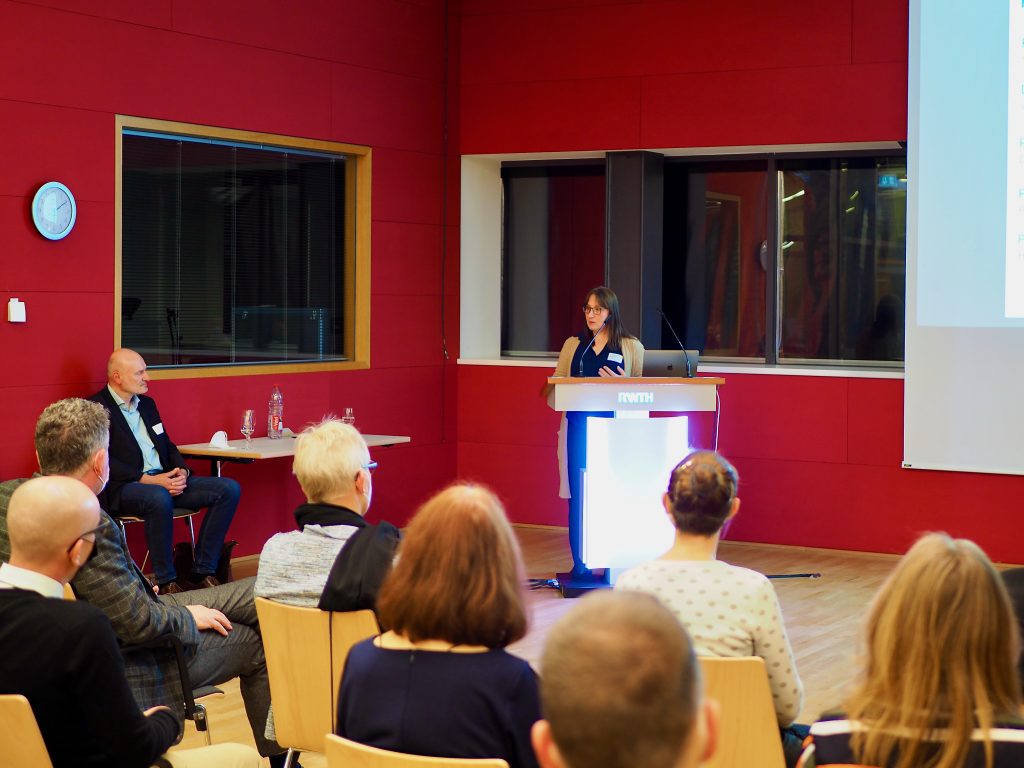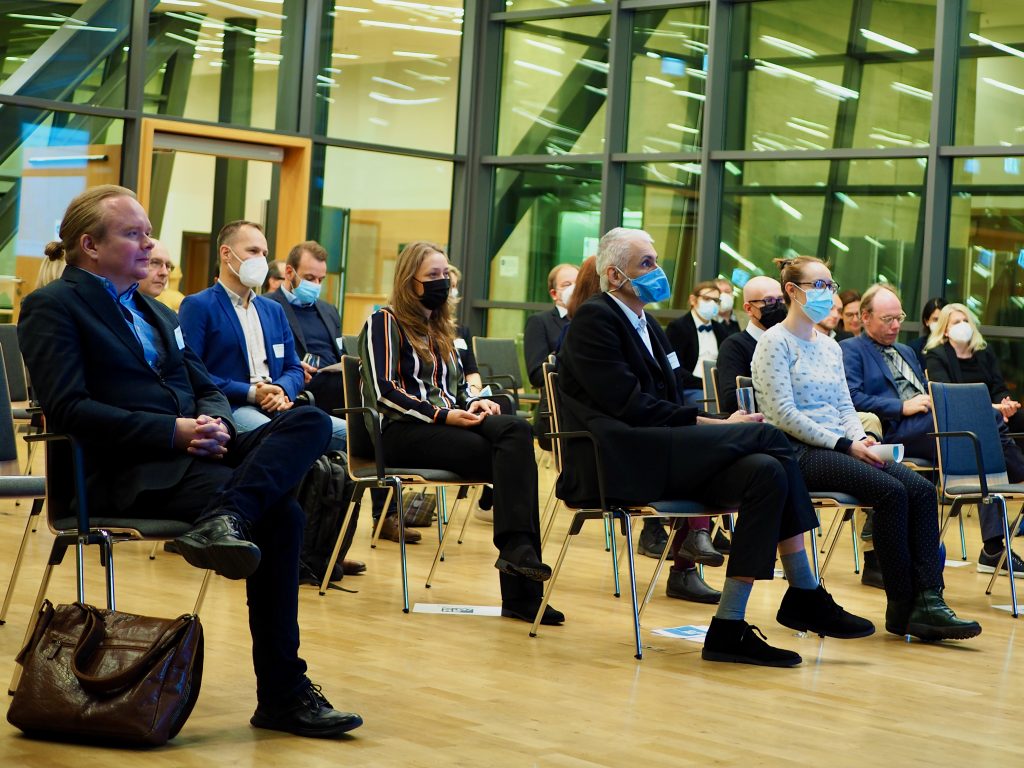Explainable AI – Explanations in AI
We are excited to announce the second c:o/re workshop, “Explainable AI – Explanations in AI”, organized by Markus Pantsar and Frederik Stjernfelt. It will take place on the 2nd and 3rd of February.
Abstract
One important challenge in machine learning is the “black box” problem, in which an
artificial intelligence reaches a result without any humans being able to explain why.
This problem is typically present in deep artificial neural networks, in which the hidden
layers are impenetrable. To tackle this problem, researchers have introduced the notion
of explainable AI (XAI). In this workshop we discuss a variety of approaches to this topic in connection to fundamental questions in artificial intelligence. What are explanations in AI? What do AI systems explain and how? How does AI explanation relate to the topics of human understanding and intelligence?
For information on the program and participating, please see the links below.
“Only the Initiates Will Have the Secrets Revealed”
Tune in for the next talk in our Lecture Series “Cultures of Research – Digitalization of Research“. On Wednesday, January 26th, Alexandre Hocquet (Fellow c:o/re Aachen, Archives Henri Poincaré) will talk about the Politics and Materialities of Open Science.
The talk focuses on software in science and its diversity of entanglements with openness. Software has been “eating” the world, and science is no exception. From Excel to complex “big” scientific instruments, via Photoshop or molecular modelling software suites, the vast majority of software used in science is not open, and a vast majority has nothing to do with computer science. When software is open, it is very often naively represented as a solution to all issues in science, especially reproducibility. Yet, even open software is full of epistemic issues, from governance to consistency, and the consequences of its influence on the rest of open science are often misunderstood, especially regarding licensing policies.
c:o/re panel @ EASST 2022
The c:o/re Team will be chairing a panel at the EASST conference “Politics of Technoscientific Futures” in Madrid, July 6 to 9, 2022. Our panel “Making Media Futures” focuses on the role of different media in making and disseminating scientific imaginaries of the future and on their variations according to their interactions with different communities and contexts. If you want to contribute to our panel, send us an abstract with your ideas through the conference website form. The full call for abstracts can be found here. The deadline is February 1st, 2022, has been extended to February 7th. Looking forward to seeing you in Madrid!
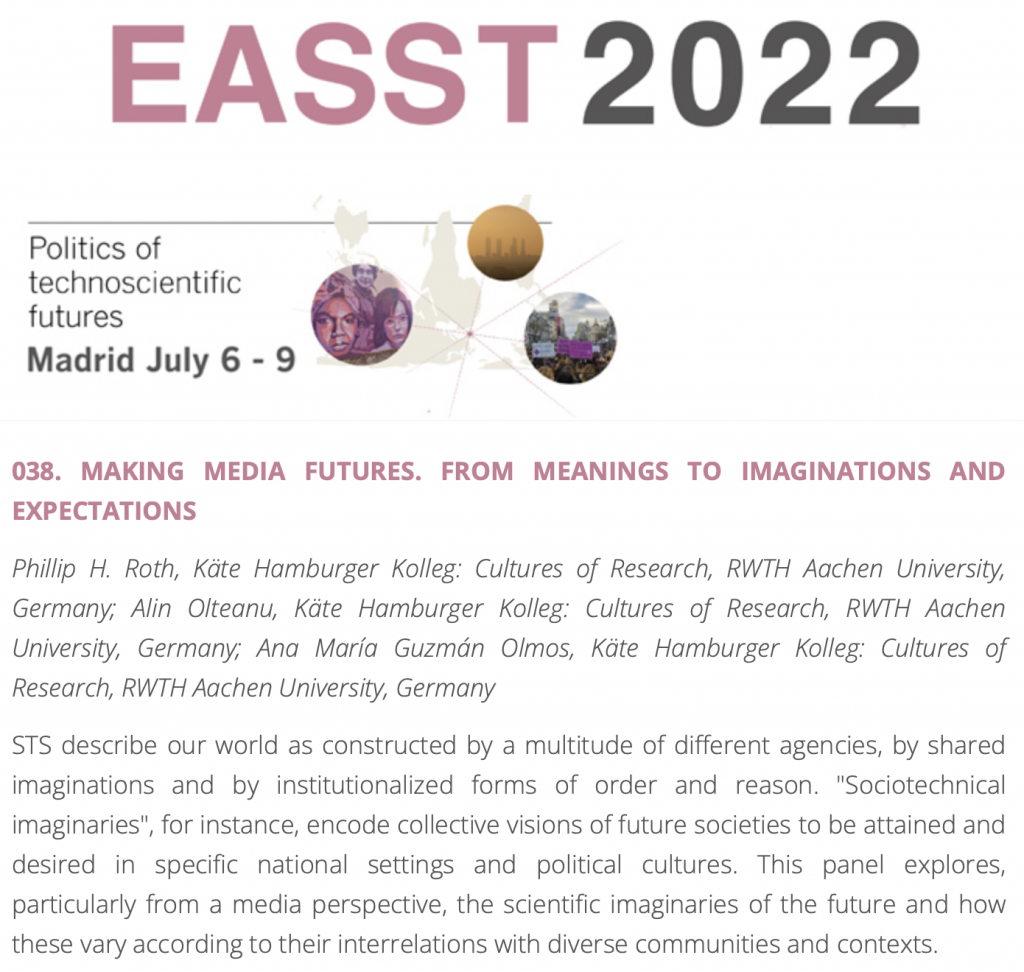
Who are ‘You’ in the Future of Humanity?

STEVE FULLER
Does being human require a certain kind of embodiment? This may sound like a strange question because we are accustomed to the equation, ‘Human = Homo sapiens’. Thus, the natural way to interpret talk about ‘animal rights’ or ‘machine rights’ these days is in terms of granting ‘rights’ in some sense to beings not embodied as Homo sapiens. But alternatively, we could simply mean extending the status of ‘human’ to animals and machines. The latter interpretation, while counterintuitive at first glance, would be truer to the uneven legal application of ‘human’ in the history of Homo sapiens. After all, we are still struggling to accept all members of Homo sapiens as ‘human’, even though ‘humanity’ has been attributed to animals, machines – and even extraterrestrials – down through the ages.
Now, you might read this last sentence as a moral indictment of Homo sapiens. On the other hand, you might say that it reveals the historical vagueness of ‘human’ as a predicate that remains even after Linnaeus’ mid-eighteenth-century coinage of ‘Homo sapiens’ to name the human animal. Only then did most modern intuitions about ‘humanity’ start to crystallize. But Linnaeus’ seemingly simplifying move has arguably only complicated matters. Consider these two countervailing developments:
(1) ‘Anthropology’ was coined (by Kant) at the end of the eighteenth century to name the science of Homo sapiens, whosespecies uniqueness has been increasingly challenged by Darwinians wanting to absorb humans into the more general study of animals. The fate of the ‘social sciences’ as separate from the natural sciences hangs in the balance.
(2) At the same time, a vast cross-disciplinary search has been launched to find something distinctive about upright apes that might make them ‘human’ – or more to the point, Homo sapiens as already ‘human’. The quarry has often been defined in linguistic or genetic terms – or both! The results have so far been inconclusive, to say the least.
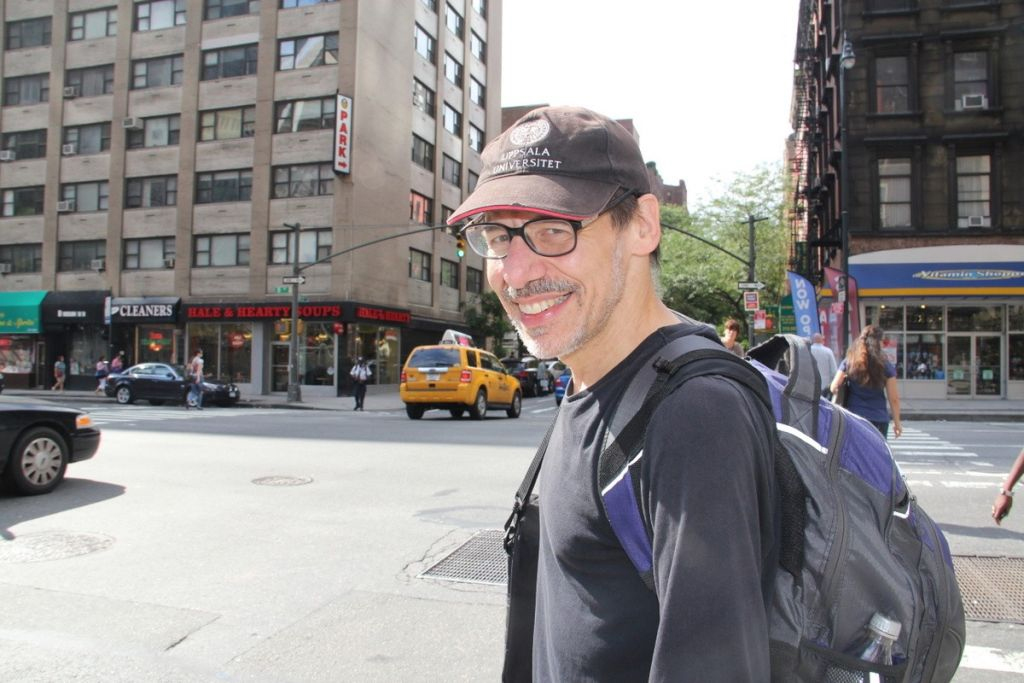
Steve Fuller
Senior Fellow at c:o/re (10/21-09/22)
Steve holds the Auguste Comte Chair in Social Epistemology in the Department of Sociology at the University of Warwick, England, where he founded the research program of social epistemology.
This checkered history in the modern study of the ‘human’ suggests that we might consider the advantages of returning ‘human’ to the status of a vague predicate. From its earliest usage, ‘humanity’ has generally implied educability. It results in what Pierre Bourdieu called habitus, which is in turn ultimately about comportment: how you carry yourself in the world. In very broad terms, the Greeks and Romans focused on self-comportment, whereas the Christians stressed comportment towards others. This helps to explain the survival of ‘dignity’ and ‘recognition’ as normative concepts throughout modern Homo sapiens-centered discussions of humanity. However, the key metaphysical point is that ‘humanity’ is presented as something that one transitions into. It’s not naturally given, but it’s available as an opportunity to seize. This explains the centrality of education in (at least) the Western imagination in both ancient and modern times: It’s the process by which (any)one can become human. It’s also why the ‘humanities’ have been historically central to the university curriculum.
Given the various exclusionary narratives that have evolved around Homo sapiens over the past 250 years, one might conclude that Linnaeus’ coinage has served to restrict – not extend – our understanding of humanity. In this context, the word cishumanity has been coined to characterize what has become our default Linnaean view: that is, to be human is to be born as Homo sapiens. The neologism is modelled on the usage of transgender activists who coined ‘cisgender’ to refer to those who identify gender with the sex of one’s birth – as opposed to the manner of one’s self-presentation. The use of ‘cis-’ in this context has aroused controversy because it draws attention to the privileging of origins – in this case, being born in the ‘right’ animal species – over achievement in the determination of one’s standing in the world. Of course, this is a familiar theme from the long history of human attempts to escape from social discrimination.
But once we take seriously the proposition that humanity is something that one is not born into but rather must achieve, the focus shifts to the criteria of humanity. ‘Criteria’ first became philosophically luminous in the hands of the Stoics, whose worldview was informed by the belief that decisions must be taken against the backdrop of a fundamentally indeterminate world. The ‘only’ question is the basis on which such decisions should be taken; hence the need for ‘criteria’. In terms of modern philosophy, this position captured at once a ‘deontological’ ethics and an ‘antirealist’ epistemology. In other words, you must set the principles of judgement – otherwise there are no principles – and then you abide by whatever follows from that decision. Kant’s greatness came from tackling the question of the ‘you’ in its clearest and most comprehensive form. However, the self-styled ‘cosmopolitanism’ (a Stoic coinage) of his moral and political writings was arguably compromised by his debt to Linnaeus in the Anthropologie.
The ‘you’ in terms of criteria for humanity is the one who decides who else belongs. In this context, I have proposed a ‘Turing Test 2.0’. Whereas the original Turing Test was about selecting out the computer from the human, its upgraded version would select in the computer — or any other being — that passes the criteria, regardless of its material origins. In the spirit of Kant’s categorical imperative, your confidence in the principles that constitute the criteria would be sufficient to judge on behalf of the entire set of beings with which you identify. (Of course, then you would be willing to live with the consequences of your judgements). Such a ‘Turing Test 2.0’ would certify a sense of ‘ontological citizenship’ that binds both the judging and judged entity in a common humanity. The resulting world is one where The League of Humanity liberates the robots in R.U.R. and all the replicants pass the Voight-Kampff test in Blade Runner.
References
Fuller, S. (2014). ‘What scientific idea is ready for retirement?: Human = Homo sapiens’. Edge.org
Fuller, S. (2019). ‘The metaphysical standing of the human: A future for the history of the human sciences’. History of the Human Sciences 32: 23-40. The metaphysical standing of the human: A future for the history of the human sciences – Steve Fuller, 2019 (sagepub.com)
Hernandez-Orallo, J. (2017). The Measure of All Minds: Evaluating Natural and Artificial Intelligences. Cambridge UK: Cambridge University Press.
Featured image: carbon fibers, photo: Mario Irrmischer
proposed citation: Fuller, Steve. 2022. Who are ‘You‘ in the Future of Humanity? https://khk.rwth-aachen.de/2022/01/17/2086/2086/
New Year – New Fellows
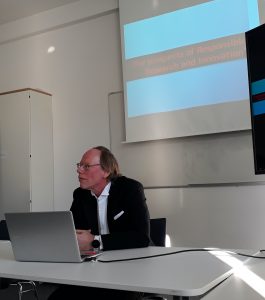
This week, we welcomed René von Schomberg and Catharina Landström at RWTH Aachen university. Like Andoni Ibarra, who arrived at c:o/re in December, René von Schomberg is working on responsible innovation in research with a focus on the value of ‘openness’.René von Schomberg is a Guest Professor at the Technical University of Darmstadt, Germany, and counselor to the European Commission. In a hybrid lunch talk, he gave us a glimpse into his research program for the coming months.

STS scholar Catharina Landström, Associate Professor with a focus on environmental studies at Chalmers University of Technology in Gothenburg, Sweden, is also touching on the subject of open science. After years of intensive field work with a focus on water systems challenges, she is happy to delve into critical text analysis for the coming six month. She will explore how experts argue in writing and how they convey to environmental decision makers the validity, relevance and reliability of knowledge in the face of computer simulation modelling.
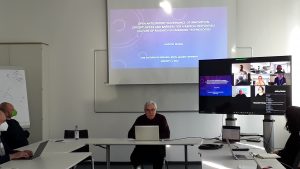
This introduction of the new projects refreshed the academic debate among fellows, as new overlaps unfurled. Upcoming events are meant to further explore these junctions.
Technophany: Local Futures (Special Issue #1)
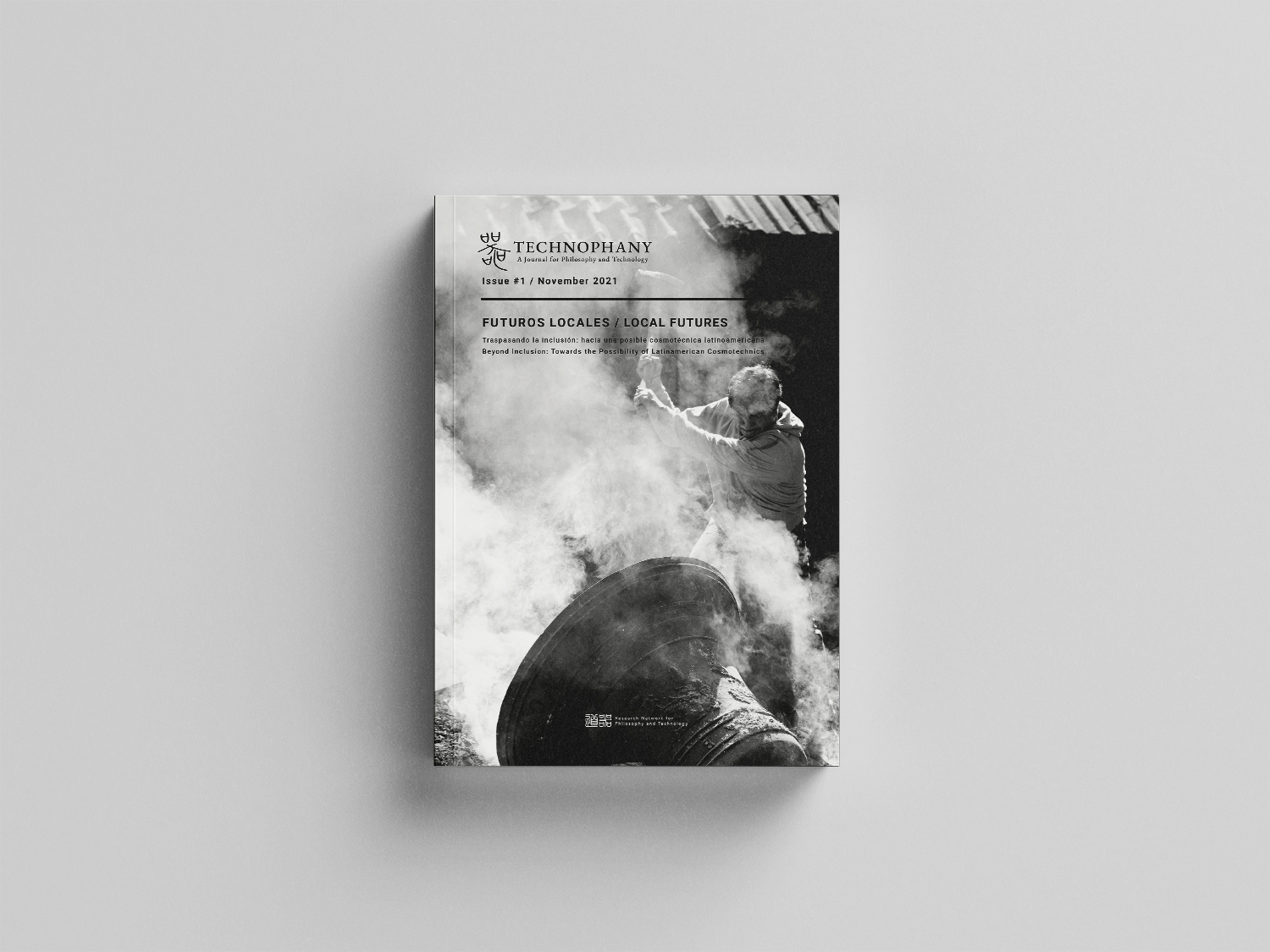
We are very pleased to announce the online first launch of the first special issue of the Journal Technophany, edited by sound artist Hugo Esquinca and our team member Ana María Guzmán Olmos. Technophany is a journal published by the Research Network for Philosophy and Technology and is dedicated to the thinking of science and technology in their historical and philosophical dimensions. This special issue considers Yuk Hui’s concept of cosmotechnics as starting point to reflect on particular Latin American technologies, technical thought and philosophy of technology, as well as the question of what does it mean to speak of local technologies in general.
The issue follows the format online first and, in this spirit, the articles will be released biweekly, thus giving space for debate and conversations around each singular article. Since the editors think that it is not possible to speak of local techniques and thought without listening to the local scholarship, the issue is bilingual so that each author could feel comfortable writing in the language in which they are used to contribute to knowledge.
The aim of this publication is to expand the discussion and the community of debate around Latin American technical thought and techniques. In this sense, we started a conversation with philosopher of technology Yuk Hui and the editors, where we expand on the possibility of thinking with the notion “cosmotechnics” across different cosmologies and particular contexts by bringing to the front the different problems and topics opened up by the articles.
In parallel to the open dialogue with Hui, a series of conversations in Berlin’s Cashmere Radio will be broadcasted live and online. The conversations will kick off with a dialogue between the editors (Hugo and Ana) and Fernando Wirtz, author of the paper “Cosmotechnics as Method: Beyond Geoculture” on January 17th (tbc).
We’ll be updating on upcoming events and radio conversations here and on the Networks social media.
You can read the Issue here:
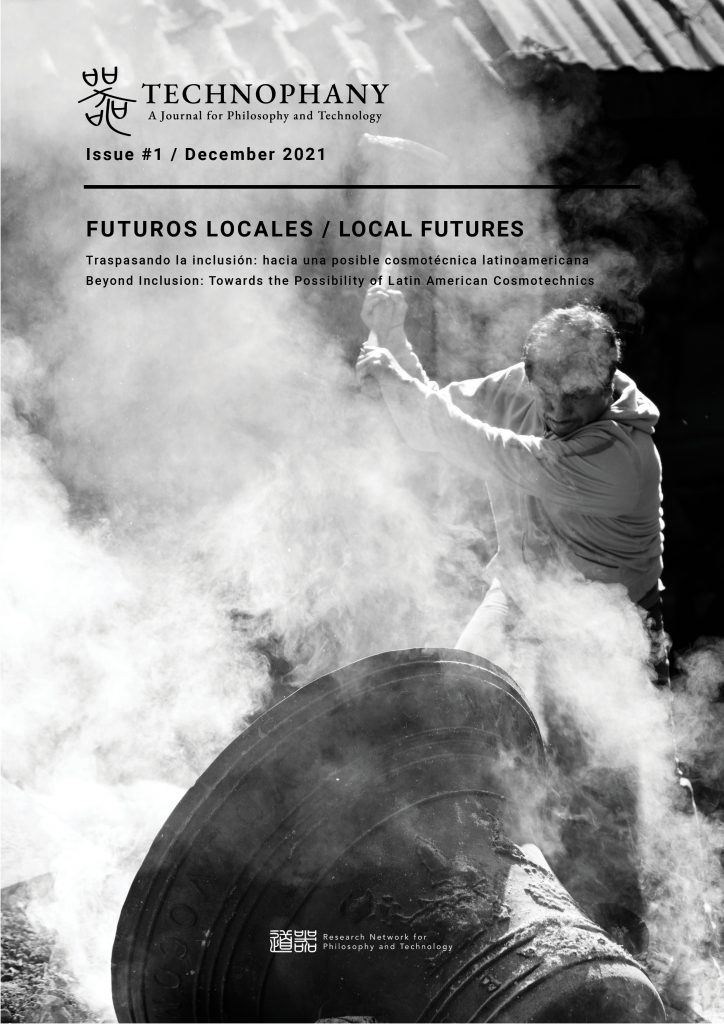
Towards responsible innovations in nanotechnology
We are very happy to welcome Professor Andoni Ibarra to c:o/re. Andoni Ibarra is Professor of Philosophy of Science at the University of the Basque Country and last week his fellowship at our Center started. His research focuses on questions and conditions of governance, particularly in regard to responsible innovation. In the coming twelve months, he will be working, in close cooperation with RWTH’s Human Technology Center (HumTec), on the project “Open anticipatory governance of innovation. Opportunities and barriers for a radical responsible culture of research in emerging technologies”. Our colleague, PhD researcher Stefan John of the Living Labs Incubator will support this research program. Stefan graduated in Science and Technology Studies at the Technical University Munich in 2019. He gave us a glimpse into the basics of this project and where his interest in the topic stems from. Here is what he told us:
Stefan, why does the project “Open anticipatory governance of innovation” interest you in particular?
I became interested in the topic of governance and technology while working on my Master thesis on a Living Lab/Testbed at Munich Airport. As technology co-determines our daily lives, I am interested in how it gets created and by whom. The question of social responsibility and sustainability are important yet difficult to ask and assess. Hence I am delighted to support the research of this framework.
What is the rationale of Andoni Ibarra’s project and what do you expect as an outcome?
The starting point of this project is a specific perspective on research: it promotes an open anticipatory understanding of responsible research, according to which the collective problematization of the future states of a system is a basic condition for the consideration of possible alternatives for action. The goal is to develop a governance framework that contributes to the implementation and assessment of responsible anticipatory practices in research and innovation, which we consider with a focus on nanotechnologies.
And how are you going to test and implement such a governance framework?
By drawing from practical experience of nanotechnologists. In close collaboration with practisioners, we will analyze the opportunities and barriers/limits involved in the operationalization of open anticipatory governance. This will allow us to reflect on if and how collective deliberations on sociotechnical futures influence actual practices in the field of nanotechnology.
What is your task in this project and what are the next steps for you, Stefan?
As a researcher at RWTH Aachen University, I will help build a network of nanotechnologists at the university. We already had a meeting with various experts in this field which was very inspiring. My tasks at the moment consist in assessing the relevant literature and reaching out to researchers with practical experience in open anticipatory governance. The objective is to create a network of experts that will help us advance the state-of-the-art in the emerging technology of nanoscience and its problematization.
Talk by Professor Frederik Stjernfelt @ Institute of English Studies (RWTH Aachen)
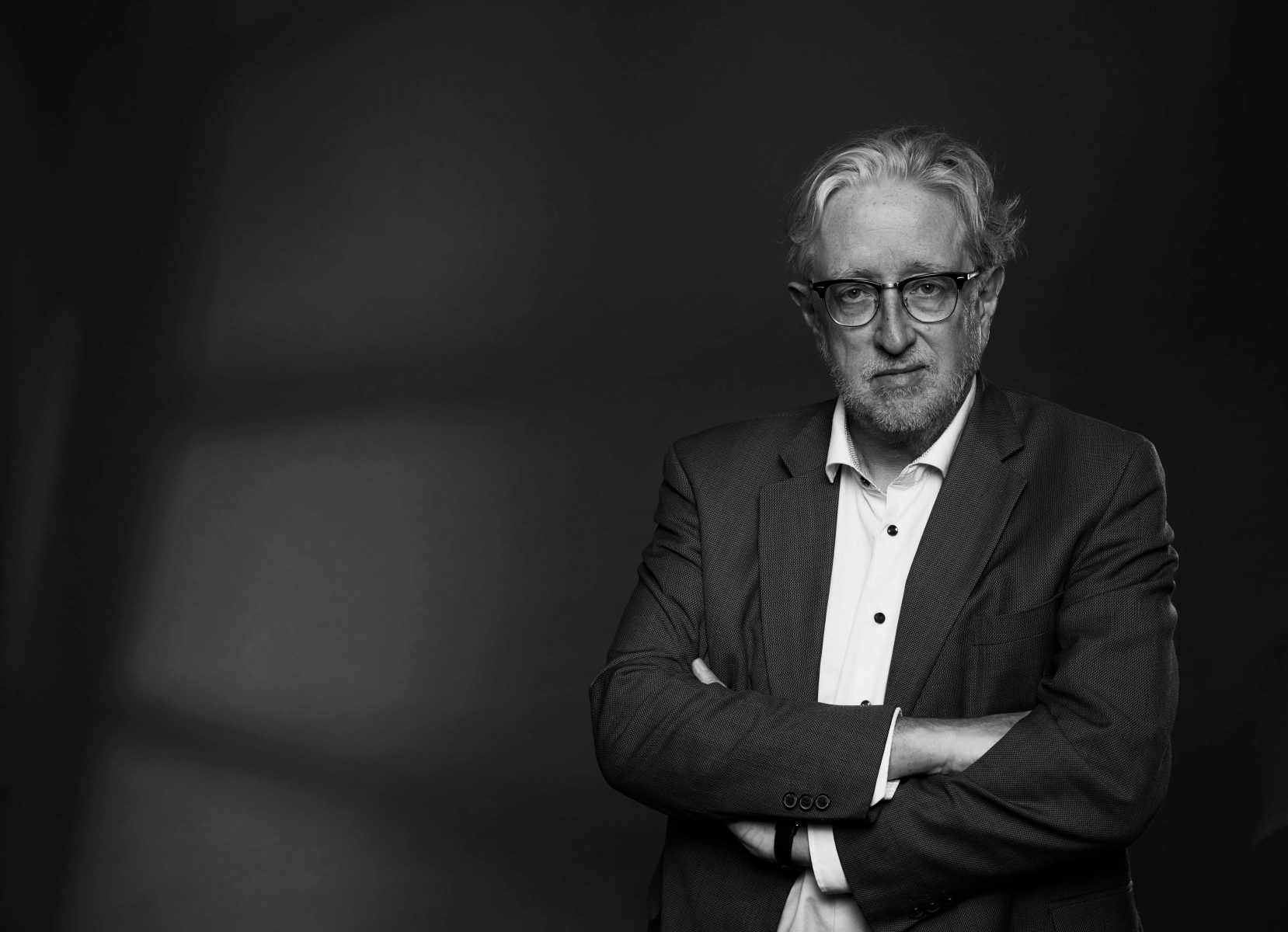
Co-localization as the Elementary Syntax of Generalized Propositions
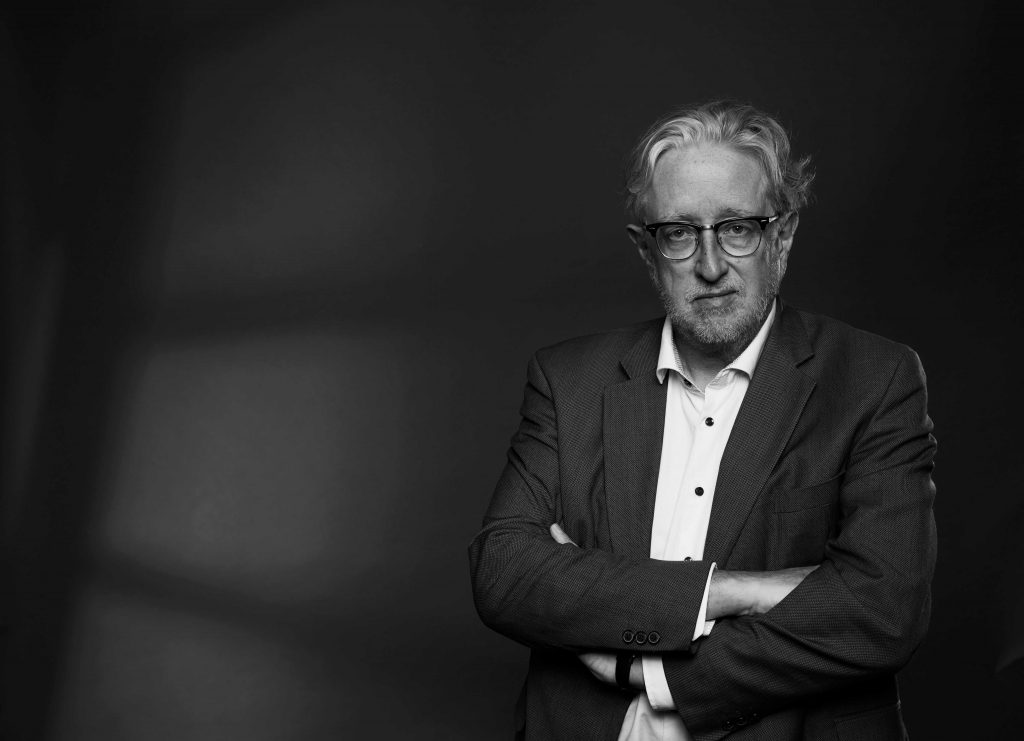
On Monday, November 15th, at 16:30, Professor Frederik Stjernfelt will give a talk (online) in the Colloquium of the Institute of English Studies. Entitled “Co-localization as the Elementary Syntax of Generalized Propositions”, the talk will explore uses of a specific notion of proposition coming from Charles S. Peirce’s semiotics in linguistics and literary studies, broadly. Particularly, Professor Stjernfelt will focus on the notion of co-localization as an elementary requisite of syntax. If you are interested to attend, please contact us.
Officially started with a view
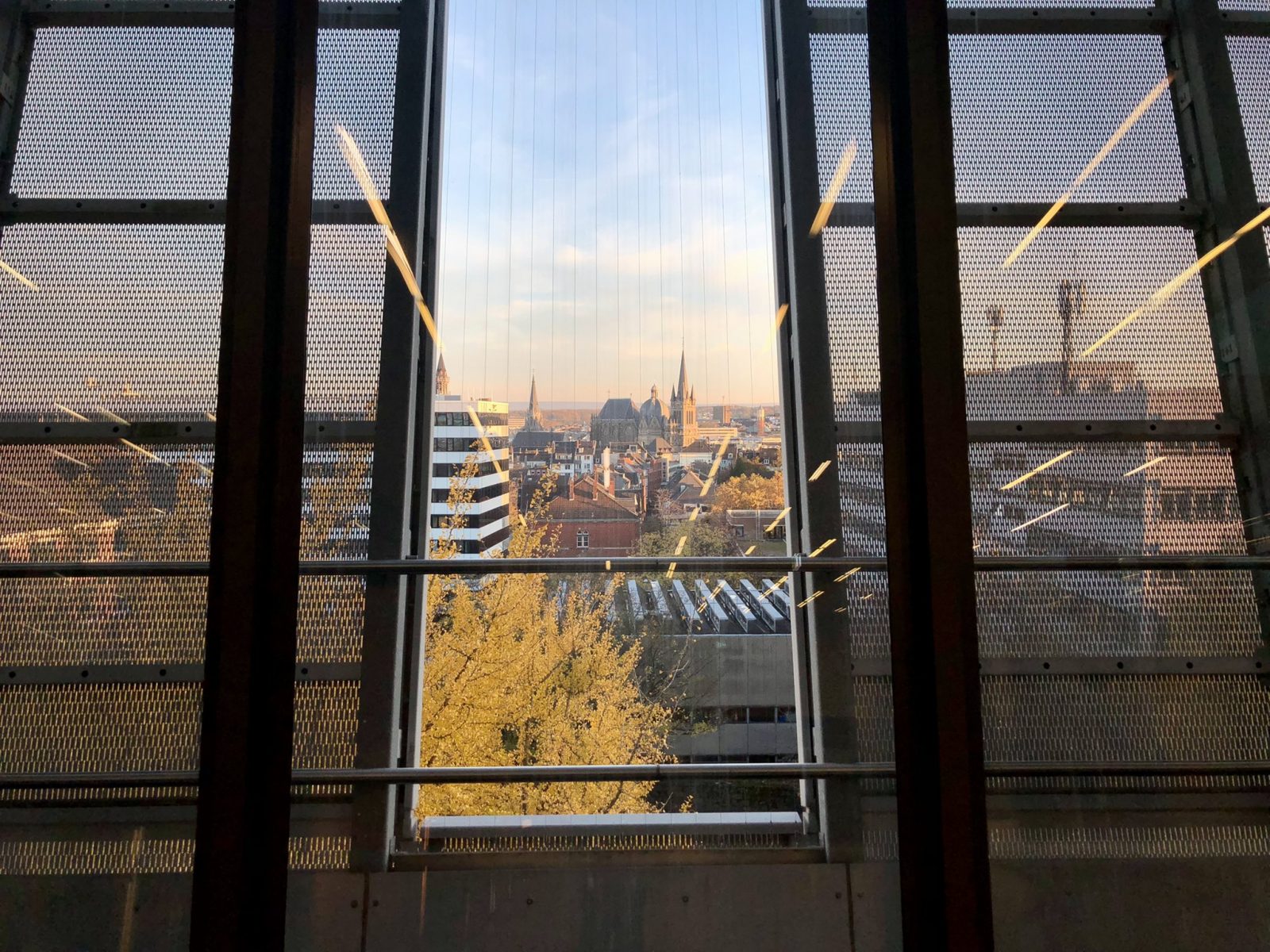
Yesterday, on November 10th, our Käte Hamburger Kolleg officially welcomed this year’s academic fellows at RWTH Aachen University. Against the atmospheric backdrop of the Aachen city view from building Super C, members of the Faculty of Arts and Humanities met with our international fellows for a first get-together and personal exchange. c:o/re’s directors Gabriele Gramelsberger and Stefan Böschen introduced the Center and the individual researchers, and they took the chance to thank those responsible at RWTH Aachen University for their strong support in the — often very challenging – process of kicking-off the first International Center for Advanced Studies at this university. Vice-Rector for Research and Structure, Prof. Dr. Ing. Matthias Wessling, and Dean of the Faculty of Arts and Humanities, Prof. Dr Christine Roll gave two warm and welcoming addresses. They did not only invite the fellows to work and contemplate on their research during their stay in Aachen, but also encouraged them to challenge RWTH Aachen University and the status quo of research infrastructure in Germany to push innovate, answers to yet unsolved questions and pose new questions. We would like to thank all participants to the event for the positive spirit they brought and, also, for the attention they paid to properly respecting the policies meant to restrict the spread of COVID-19.

